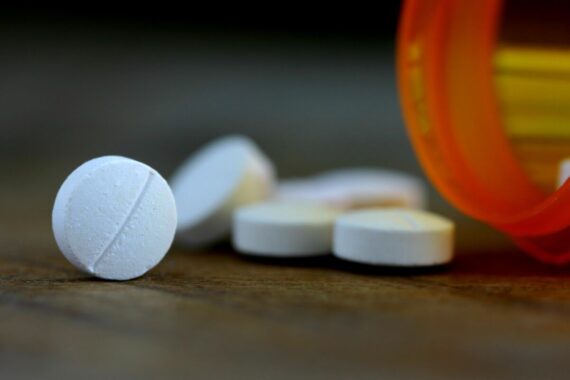GPs having to provide advice on alternatives amid ‘daily’ medicines shortages

Ongoing medicines shortages are causing extra workload including for GPs who are having to provide advice about alternatives, a report said.
Daily battles with medicines shortages are putting patient health at risk and should be ‘ringing alarm bells’, pharmacy leaders warned.
Community Pharmacy England said medicines supply issues were now ‘beyond critical’ with many reporting they are dealing with several different shortages every day.
In a survey of 6,100 pharmacy owners, and 2,000 frontline pharmacy staff, 79% said patient health was being put at risk by medicines supply disruption.
Almost all staff said medicines shortages are worse than this time last year with 72% reporting facing multiple issues a day.
One pharmacist responding to the survey gave the example of a patient prescribed a different brand of epilepsy medication due to their usual drug being out of stock but that was then ‘ineffective in controlling their epilepsy’.
The vast majority reported it was becoming more frequent to have to issue part of prescription and owing the rest which would need to be collected at a later time.
In addition to patient frustration and extra workload for staff, the survey also highlighted the regular need for discussion or communication with GP practices about alternatives.
The CPE report noted that hundreds of different drugs have become hard or impossible to obtain.
Last month a report from the Nuffield Trust concluded that regular shortages of life-saving medicines had become the new normal in the UK.
While issues with supply chains were a global problem, Brexit had made the problem harder for the UK to tackle, it found.
Over the past 12 months, Pulse has reported shortages of medicines for diabetes, ADHD, epilepsy, menopause and scabies, as well as antibiotics.
In some cases, GPs have been asked to proactively contact some patients to discuss switching to an alternative – including those with type 2 diabetes taking glucagon like peptide-1 receptor agonists.
Janet Morrison, CPE chief executive said: ‘As these survey findings highlight, the medicine supply challenges are beyond critical. For pharmacies, ensuring everyone can access the medicines they need has become an ongoing battle, putting immense pressures on pharmacy teams and businesses.
‘They are doing everything that they can to find solutions for all their patients, but powerless as they are to resolve national and even global supply issues, they are being forced to operate with one hand tied behind their back.
She added: ‘Our findings make distressing reading, and they should be ringing alarm bells for anybody interested in protecting the health and wellbeing of local communities and the public.
‘We’ve been warning for some time that these issues must be resolved, and this evidence provides yet another stark warning which must not be ignored.’
James Davies, the Royal Pharmaceutical Society’s director for England, said: ‘Medicines shortages are disrupting treatment for some patients and destabilising their health.’
He called on drug manufacturers, wholesalers and suppliers to collaborate more closely with ministers and the NHS ‘to ensure a more stable supply of medicines’.
A Department of Health and Social Care spokesperson said: ‘There are around 14,000 licensed medicines and the overwhelming majority are in good supply.
‘Supply issues can arise for a wide range of reasons and are not specific to the UK.’
‘Our priority is to mitigate risks posed by those issues and to help ensure that patients continue to get the treatments they need. Thankfully most issues can be managed with minimal impact to patients.’
Pulse July survey
Take our July 2025 survey to potentially win £1.000 worth of tokens

Visit Pulse Reference for details on 140 symptoms, including easily searchable symptoms and categories, offering you a free platform to check symptoms and receive potential diagnoses during consultations.
Related Articles
READERS' COMMENTS [2]
Please note, only GPs are permitted to add comments to articles











nothing will be done….nothing at all
Not just having to provide advice on alternatives, but defend against spurious complaints arising from this whole mess.